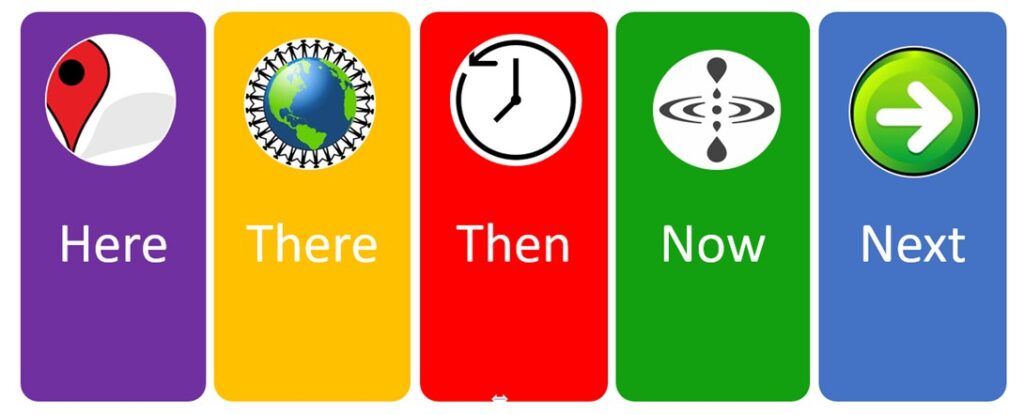Curriculum

Trannack School Curriculum Overview and Drivers
At Trannack Primary School, nurturing the individual and promoting academic excellence sit side-by-side, and it is our curriculum ambition for every child to leave Trannack Primary School embodying our values and virtues of respect, resilience, resourcefulness and responsibility, which enable our children to be kind, confident, curious and creative citizens.
With this in mind have designed a history-rooted, book-led, vocabulary-rich curriculum that connects learning by building an understanding of ideas, concepts, chronology and themes through the framework of ‘here, there, then, now, and next’.
These thinking threads create opportunities to learn from the past, understand the present and equip children to succeed in an ever-changing and exciting future, and are further underpinned by high quality books that link learning meaningfully.
Implementation – our drivers are our ‘thinking threads’ that guide our curriculum choices:
At Trannack Primary School we follow the National Curriculum and EYFS framework as the basis of all our learning. Our curriculum is designed to ensure that children acquire essential knowledge in small steps, leading towards end points with opportunities in each lesson for reactivation and recap to help children recall knowledge. As a consequence, children use their knowledge to make links and connections and apply their understanding to other subjects, concepts and the development of skills. We have robust teaching and learning strategies which are embedded so that they become habitual These include ‘Cold Calling’ and ‘Agree, Build, Challenge’, through which children demonstrate that they are highly engaged, responsive and enjoy the opportunity to participate fully with their peers. Skilled adaptation of lessons also enables all children to access the learning, from those who need additional support through to those who require a greater level of challenge. Our curriculum delivery is thoughtfully enhanced by the use of our extensive outdoor spaces, creating numerous opportunities for our children to learn in and from our natural environment.
- We teach early reading through Read Write Inc from EYFS. When children are off the programme, we teach reading fluency strategies. These include echo and choral reading. Teachers explore vocabulary in every lesson and use the different question types through VIPERS to check comprehension. Teachers adapt learning with carefully constructed questions and stem sentences.
- We have crafted our English curriculum with a focus on topic-linked, high-quality texts at its core. Precisely sequenced units and lessons develop a broad and deep vocabulary, robust grammatical knowledge and encourage creativity in our children’s writing.
- Mastery mathematics is embedded in our lessons using Number Sense, Mastering Number and White Rose. Lessons are adapted well through variation and further scaffolded by modelling and fading.
- We use a combination of Plymouth Science and Ogden Trust to support our science programme. Plymouth Science provides the objectives for learning and in some areas, this is enhanced by the Ogden Trust which offers high quality CPD, resources and enriching lessons.
- History and Geography sit at the core of our wider curriculum delivery under umbrella ‘topic’ headings. However, History and Geography teaching is focused, bespoke and progressive. Kapow is used in KS1 as the basis for our History and Geography planning and is used as a resource to support our planning and coverage of curriculum objectives in KS2, although our History and Geography KS2 rolling programmes are designed in-house.
- Kapow also provides the framework for our Art, DT, Music, MFL and PSHE teaching, enabling a curriculum-based, knowledge-rich learning experience where learning is built in small steps. Following the schemes that are carefully crafted by Kapow enables us to ensure comprehensive curriculum coverage while engaging children in these creative and inspiring subjects. Kapow’s PSHE curriculum encourages discussion and debate and offers a robust and progressive RSE framework as children progress through the school.
- Digital Learning Cornwall has been adopted to provide the essential knowledge and skills needed to thrive in a digital world and manage online activity. Project Evolve is used to support our comprehensive teaching of eSafety. These resources help to develop the necessary learning to stay safe online and use technology with increasing ability to equip children for a future that is digitally progressive.
- Complete PE comprehensively guides our physical education and sport provision. It provides teachers and coaches with step-by-step guidance and instruction to ensure children develop the skills and competencies to become increasingly active and inclusive.
- Our RE follows the Cornwall Agreed Syllabus, with planning support from RE Today. These sources provide teachers with detailed guidance on what should be covered in lessons and enable teachers to plan lessons that are discussion-based and provide many opportunities for developing oracy.
Trannack is a supportive, nurturing and thriving learning community. All our children, regardless of their background or level of need, experience inclusive, varied and exciting opportunities, both onsite and through engaging, relevant trips, which foster a sense of belonging and strong cultural capital. Personal Development, social justice and sustainability are a central a part of our planned curriculum, and we ensure that we develop in our children a deep and meaningful understanding of the importance of taking care of our planet, our community and ourselves. Therefore, we educate and embrace cultural diversity, social change and equality, challenge prejudice, and prepare children for a future that is respectful, caring and hopeful. As such, we further enhance our curriculum through Lyfta, an immersive 3D education platform that provides children with virtual experiences of places and people that they would not otherwise meet.
